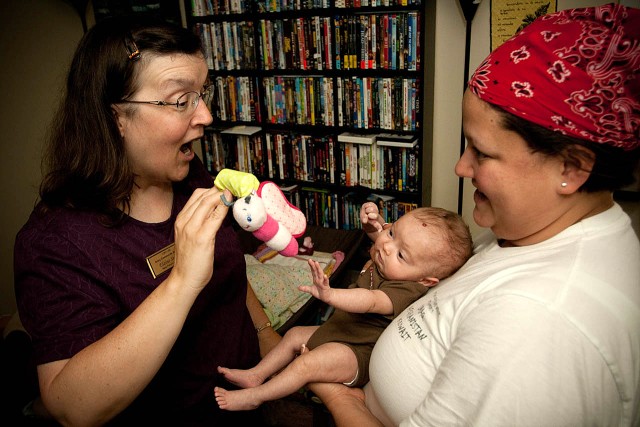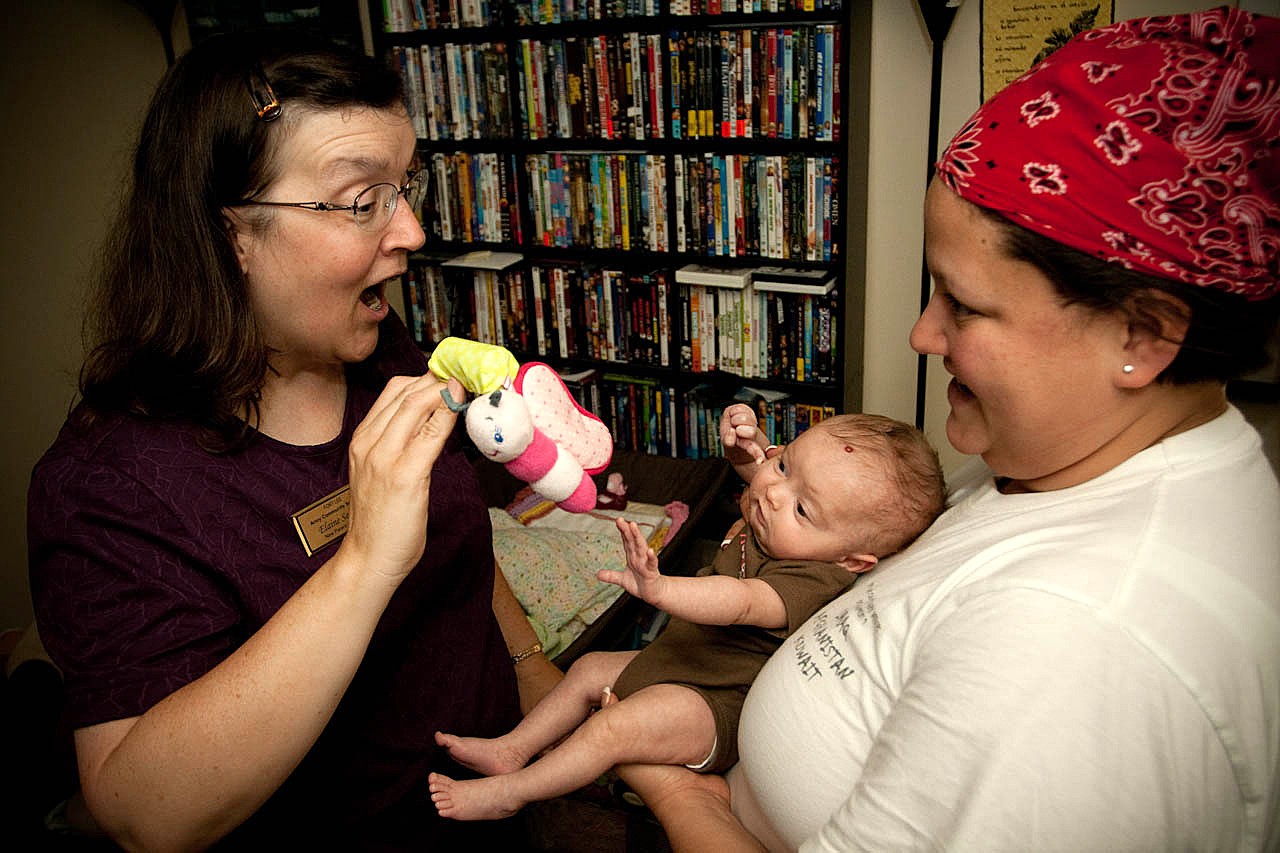ALEXANDRIA, Va. (Army News Service, Aug. 16, 2010) -- The New Parent Support Program addresses the many concerns and challenges that military families with children, from infancy to 3, face during early childhood with an emphasis on family strengths.
"The program is offered to military families to enhance parent and infant attachment, increase knowledge of child development, and provide connections to the support services that allow parents to become nurturing and capable caregivers," said Rich Lopez, NPSP program manager.
By integrating prevention education services and activities, NPSP involves both parents, if possible, and supports the family's adaptation to military life by enhancing knowledge and skills needed to promote healthy family interaction, form healthy relationships, provide safe and nurturing environments for children, and enhance formal and informal support networks.
"While NPSP's primary focus is child advocacy and maltreatment prevention through parenting education and support, NPSP helps all families with young children by providing the skills necessary to promote healthy parenting," Lopez said.
The NPSP services are provided by experienced, licensed clinical social workers and registered nurses who have extensive experience working with families with young children and who are sensitive to the unique challenges facing military families.
According to Dr. Lori Worley, NPSP and military child/family issues program manager, one mom's life was saved through the interaction with her home visitor who noticed something was wrong with the pregnancy of one of the mothers in a class she was teaching.
"About two months ago, I was participating in a group of classes called 'mommy and daddy boot camp' with my husband. One morning before the next class was to begin, I woke up more swollen than normal," said Cpl. Gretchen M. Sweeney out of Fort Lee, Va. "Elaine Sexton our home visitor, took me aside after the class and told me to call my doctor to schedule an emergency appointment since I was showing signs of preeclampsia."
Preeclampsia is a condition of pregnancy marked by high blood pressure and excess protein in the urine after 20 weeks of pregnancy. Left untreated, it can lead to serious, even fatal, complications for both mother and the unborn baby. One sign of preeclampsia, though not conclusive, is swelling in the face and hands.
"My doctor diagnosed me with preeclampsia and told me if I hadn't gotten to him my baby and I would have both been in danger. Since then, Ms. Sexton has been very attentive, often calling to check up on me and has even visited on numerous occasions to make sure everything is okay," Sweeney said.
Spc. James Clark and his wife Kristie at Fort Campbell, Ky., joined the program because they had concerns about their son's medical issues.
"Our son Hunter has umbilicus hernia and colic and had been crying all the time, plus I had symptoms of post-partum depression," Kristie said. "Our home visitor, Mary Vozar from NPSP, was great. She was able to answer all our questions, and what she couldn't answer, she was able to point us in the right direction to get those answers."
Sgt. David Brown and his wife, Karina, stationed at Fort Bragg, N.C, have known their home visitor Diana McNamara for 33 months.
"We heard about the New Parent Support Program while attending the infant care and parenting classes. At the time I was feeling overwhelmed and a little depressed. Diana is always bringing a lot of good information to me at my home," Karinna said.
Karinna said Diana always knows what's needed when she visits and is very "on-target" with helping.
"It's made things easier by having her come to visit and helping me through some difficult times like when my brother died last year, and when my husband deployed," Karinna said.
"She's also helped us understand my older son's developmental delays, and navigating through educational and developmental intervention services. Diana goes above and beyond to help my family and I can't express in words what she means to me," Karinna said.
While all active Soldiers, National Guard and Reserve, and their families within a 50-mile radius of an installation are eligible to receive these services, priority is given to first-time parents, single parents and dual-military families.
Families can enter the program by referral from a health care professional, the command, a civilian agency or by requesting NPSP services through Army Community Services.
Program activities include screening, play groups, support groups, deployment briefs, reunion and reintegration briefs and command briefs.
Classes offered by NPSP may include prenatal and infant care, home safety, children and the deployment cycle, stress management, and infant safety among others.
Contact the local Army Community Services or family center for more information.
(Rob McIlvaine serves with Family and Morale, Welfare and Recreation Command Public Affairs.)


Social Sharing